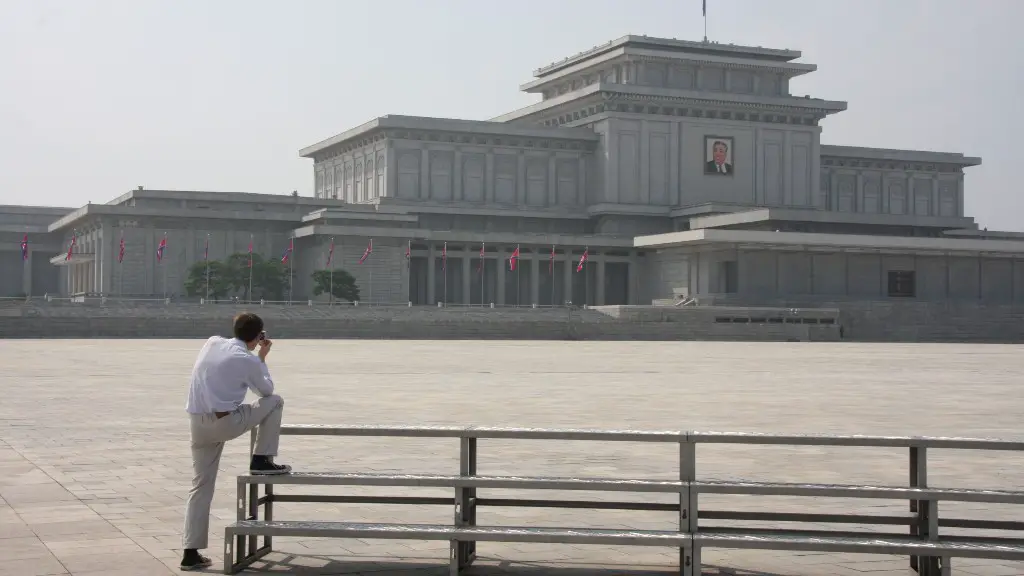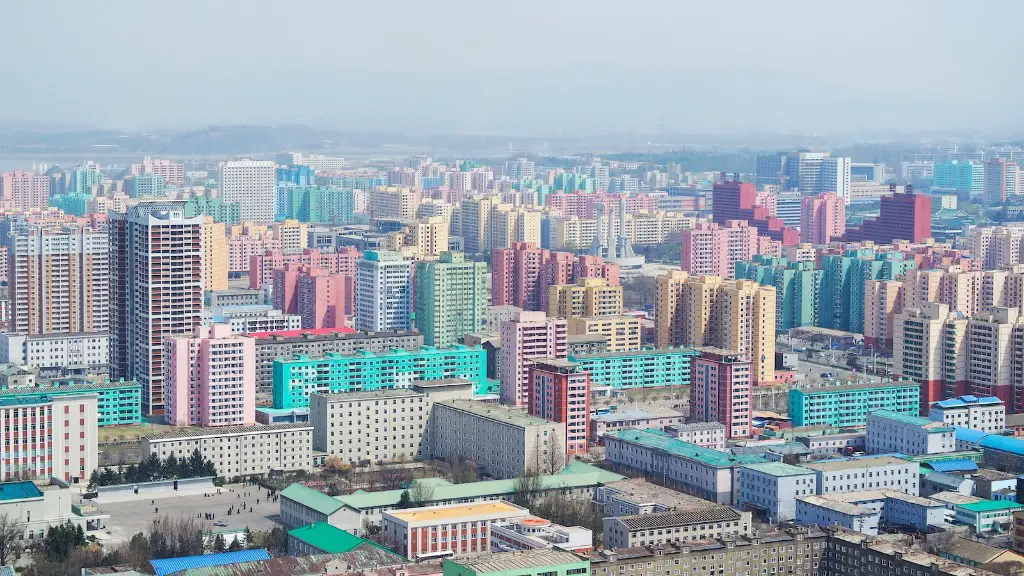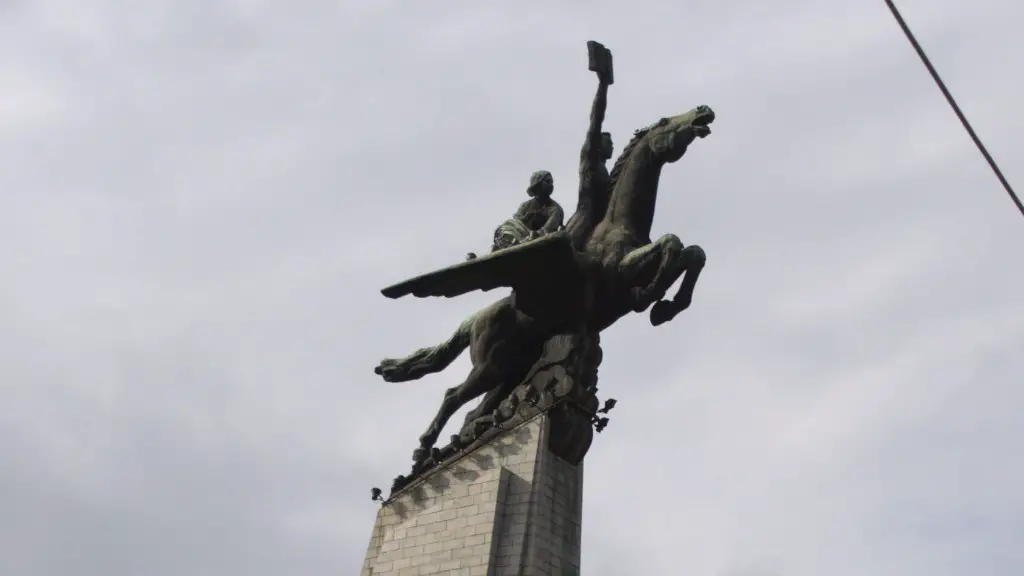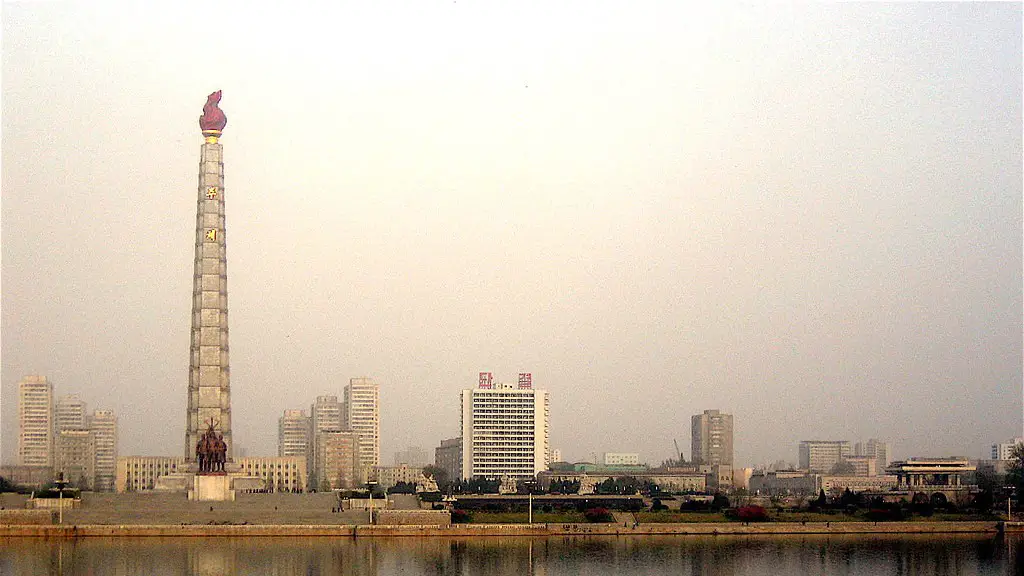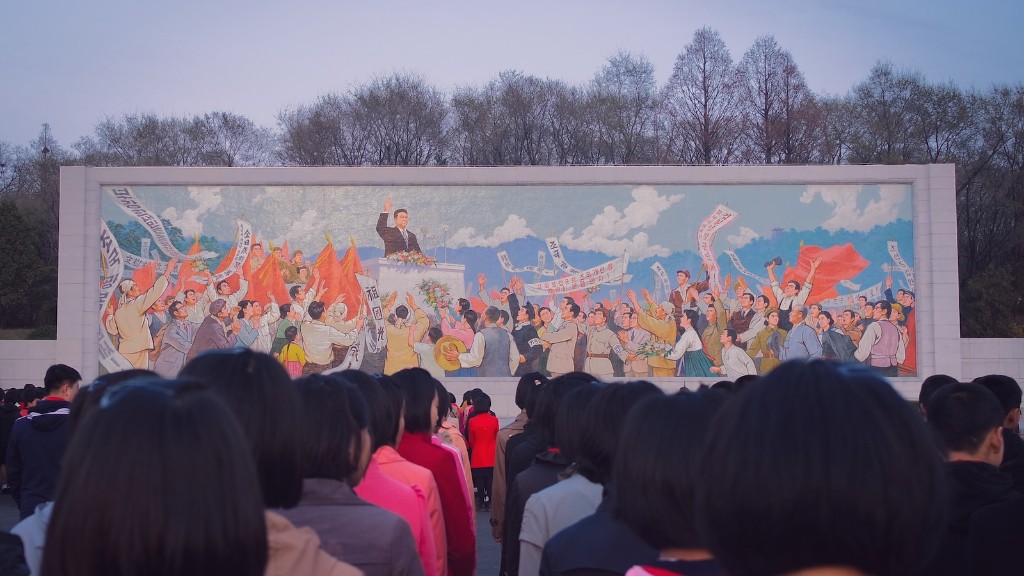The Korean War began in 1950 when North Korea invaded South Korea. The United Nations, with the United States as the principal force, came to South Korea’s aid. After three years of fighting, the war ended in a stalemate, with an armistice agreement that restored the original boundaries between the two Koreas. North Korea had been heavily damaged during the war, with much of its industrial infrastructure destroyed. In the years following the war, North Korea rebuilt its economy and made rapid progress in expanding its military capabilities. In recent years, North Korea has developed nuclear weapons and long-range missiles, raising concerns about its intentions.
The Korean peninsula was effectively divided in half at the end of the Korean War in 1953, with the North controlled by communist forces and the South by anti-communist forces. This division led to years of tension and conflict between the two countries, which occasionally flared up into violence. In recent years, North Korea has become increasingly isolated from the international community, due in large part to its nuclear weapon program.
How did the Korean War affect North Korea?
The Korean War was a devastating conflict that left both North and South Korea in ruins. Industrial production in North Korea was reduced by 60%, agricultural output by 78%, and 600,000 houses, 5,000 schools, and 1,000 hospitals were destroyed. The socio-economic status of both nations declined sharply as a result of the war.
The Korean War was a conflict between North and South Korea, in which the United States and other nations supported South Korea. The war began on June 25, 1950, when North Korea invaded South Korea. After three years of fighting, the war ended on July 27, 1953. The war cost the lives of millions of Koreans and Chinese, as well as almost 40,000 Americans.
Who ruled North Korea after the Korean War
Kim Il-sung was the first president of North Korea, serving from its establishment in 1948 until his death in 1994. He was also the country’s premier from 1948 to 1972 and chairman of the Workers’ Party of Korea from 1949 to 1994.
The Chinese forces secretly crossed into North Korea in October 1950 in response to security concern of a possible US invasion of Chinese territory. This was a major setback for the Korean People’s Army and the UN Command led by the United States Armed Forces.
Why did North Korea and South Korea split?
Since the US policy toward Korea during World War II was to prevent any single power’s domination of Korea, it may be reasonably concluded that the principal reason for the division was to stop the Soviet advance south of the 38th parallel.
The United States entered the Korean War in response to the Soviet Union’s involvement in the conflict. The US was concerned that the Soviets would control and spread communism to the entire Korean Peninsula and South Pacific if they were allowed to continue their involvement in the war. US troops quickly escalated the conflict by entering into South Korea to support its military forces. This led to other countries becoming involved in the war as well.
Who liberated Korea from Japan?
The National Liberation Day of Korea is a holiday celebrated annually on 15 August. It commemorates Victory over Japan Day, when the United States and the Soviet Union liberated Korea from 35 years of Japanese rule. This holiday is celebrated in both South and North Korea.
The Korean War was a conflict between North and South Korea, in which a United Nations force led by the United States fought for the South, and China fought for the North, which was also assisted by the Soviet Union. After three years of fighting, the war ended in a stalemate with the border between North and South Korea near where it had been at the war’s beginning.
Did Japan help North Korea in the Korean War
Japan’s participation in the Korean War is not a secret. It helped defend South Korea, sending crews and minesweepers into actual combat during the crucial first six months of that war. The Korean War started on June 25, 1950.
The North Korean government’s complete control over all monetary exchanges is a key factor in the country’s poverty. The lack of competition between businesses means that the economy is not able to grow, and this stagnation leads to poverty. The regime’s poor governance is also a major contributing factor to the poverty in North Korea.
Who started the Korean War?
This assumption led to a rapid escalation of the conflict, as the US immediately began mobilizing forces to intervene in what was seen as a global showdown against communism. The reality, however, was far more complicated, and the war had as much to do with local conflict and power struggles as it did with the larger ideological struggle between the US and the Soviet Union.
The United States and China fought each other during the Korean War. The United States supported South Korea, while China supported North Korea. The war resulted in the death of over two million people, the majority of whom were civilians.
Did China defeat US in Korean War
The PRC made an attack on ROK soldiers on October 25 and routed them at Pukchin. On November 1, the Chinese defeated American troops at Unsan, in the first Chinese-American combat of the war.
Since its founding in 1948, North Korea – officially the Democratic People’s Republic of Korea (DPRK) – has been embroiled in a conflict with South Korea. This conflict has shaped its foreign relations, as it has sought to align itself with world communism and to isolate itself from the rest of the world. In recent years, however, North Korea has begun to reach out to other countries, notably China and the United States, in an effort to ease tensions and improve its economic situation.
Which side did the US support in the Korean War?
The US supported the Republic of Korea (commonly called South Korea) in repelling an invasion from the Democratic People’s Republic of Korea (commonly called North Korea). The Korean War was a conflict that emerged after World War II. The Empire of Japan had occupied the Korean Peninsula during the war.
North Koreans can travel abroad with permission from the government, just like in other Soviet, socialist, or Eastern Bloc countries. North Korea requires its citizens to obtain a exit visa in order to travel outside of the country, and only certain people are granted permission to travel. The government heavily restricts travel to prevent its citizens from defecting, and only allows travel for business or official purposes.
Are North and South Korea still at war
The Korean War was a conflict between North and South Korea that began in 1950. However, no peace treaty was ever signed, and the two Koreas are technically still at war, engaged in a frozen conflict. In April 2018, the leaders of North and South Korea met at the DMZ and agreed to work toward a treaty to end the Korean War formally. This would be a significant step toward peace on the Korean Peninsula, and it is hoped that the two Koreas can finally put an end to their decades-long conflict.
It is great to see that the vast majority of South Koreans have a favorable view of the United States and Americans. This is a testament to the strong relationship between our two countries. The United States will continue to work closely with South Korea to maintain this strong relationship and to promote peace and stability in the region.
Final Words
When the Korean War ended in 1953, North Korea was left in ruins. The country had been heavily bombed by the United Nations forces, and its economy was in shambles. In the years that followed, North Korea struggled to rebuild its economy and infrastructure. The country also faced a number of challenges, including a disastrous famine in the 1990s. Today, North Korea remains a poor and isolated country.
The Korean War had a devastating effect on North Korea. Over a million people were killed, and the country was left in ruins. The economy collapsed, and the country became isolated from the rest of the world. Today, North Korea is still struggling to recover from the war, and its people continue to suffer.

